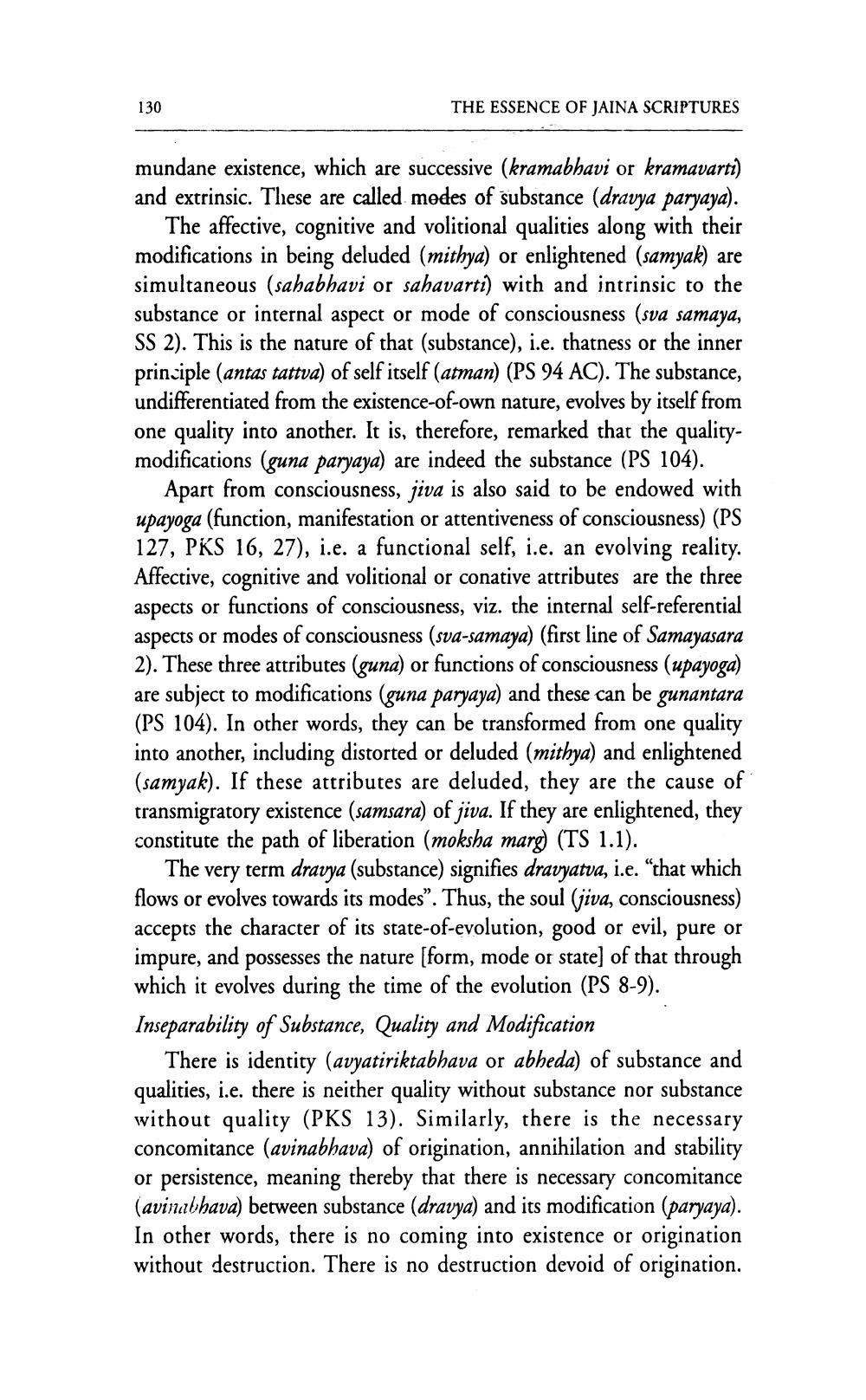________________
130
THE ESSENCE OF JAINA SCRIPTURES
mundane existence, which are successive (kramabhavi or kramavarti) and extrinsic. These are called modes of substance (dravya paryaya).
The affective, cognitive and volitional qualities along with their modifications in being deluded (mithya) or enlightened (samyak) are simultaneous (sahabhavi or sahavarti) with and intrinsic to the substance or internal aspect or mode of consciousness (sva samaya, SS 2). This is the nature of that (substance), i.e. thatness or the inner principle (antas tattva) of self itself (atman) (PS 94 AC). The substance, undifferentiated from the existence-of-own nature, evolves by itself from one quality into another. It is, therefore, remarked that the qualitymodifications (guna paryaya) are indeed the substance (PS 104).
Apart from consciousness, jiva is also said to be endowed with upayoga (function, manifestation or attentiveness of consciousness) (PS 127, PKS 16, 27), i.e. a functional self, i.e. an evolving reality. Affective, cognitive and volitional or conative attributes are the three aspects or functions of consciousness, viz. the internal self-referential aspects or modes of consciousness (sva-samaya) (first line of Samayasara 2). These three attributes (guna) or functions of consciousness (upayoga) are subject to modifications (guna paryaya) and these can be gunantara (PS 104). In other words, they can be transformed from one quality into another, including distorted or deluded (mithya) and enlightened (samyak). If these attributes are deluded, they are the cause of transmigratory existence (samsara) of jiva. If they are enlightened, they constitute the path of liberation (moksha marg) (TS 1.1).
The very term dravya (substance) signifies dravyatva, i.e. "that which flows or evolves towards its modes". Thus, the soul (jiva, consciousness) accepts the character of its state-of-evolution, good or evil, pure or impure, and possesses the nature [form, mode or state] of that through which it evolves during the time of the evolution (PS 8-9). Inseparability of Substance, Quality and Modification
There is identity (avyatiriktabhava or abheda) of substance and qualities, i.e. there is neither quality without substance nor substance without quality (PKS 13). Similarly, there is the necessary concomitance (avinabhava) of origination, annihilation and stability or persistence, meaning thereby that there is necessary concomitance (avinabhava) between substance (dravya) and its modification (paryaya). In other words, there is no coming into existence or origination without destruction. There is no destruction devoid of origination.




